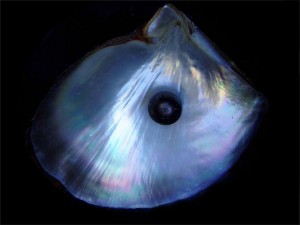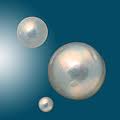Reflections
“I believe the nicest and sweetest days are not on which anything very splendid or wonderful or exciting happens, but those that bring life’s little pleasures following one another like pearls on a string.”
The power of reflection has been a learning experience for me in the last several years while furthering my education. What has been exciting for me to discover is that I have been using reflection in my own teaching pedagogy for many years in the form of a thinking circle at the end of the day. Students close their eyes and spend a couple of quiet minutes thinking about their day in terms of what they did and how they felt. Then we share our favourite thing of the day. Since I have been in the MET program I refer to the circle as a reflection circle.
Reflection as a practice helps me to analyze and assess lessons so that I can provide 21st century learners with skills that they can successfully develop in their world. Reflective practice is at the heart of teacher effectiveness. According to Schon (1983), reflection on uncertainty and complexity in one’s practice leading to ‘a legitimate form of professional knowing’ (p.69).
Throughout my ePortfolio I reflect on my question that I stated in my objectives ,”To what extent does one integrate technology in a grade one classroom and what activities produce collaborative scaffold learning experiences that support curriculum objectives?”
“According to Campbell, Melenyzer, Nettles & Wyman, (2000) based on Van Wagenen and Hibbard (1998) there are three simple questions to ask which clarifies this reflective process” 1. “What?” 2. “So What?” 3. “Now what?” These are important questions that I also focus on.
They further explain by defining each step as 1. summarize artifacts that document your learning. 2. reflect on what has been learned. 3. show how learning how become transformative to practice and identify areas for future learning.
Upon reflection, I focus as well on these fundamental questions.
How has my attitude, skills, and acquired knowledge evolved while being in the MET program ? What tools have I used and assessed as being adaptable for my students? How has being in the MET program supported me as a transformative learner and educator?
Why is reflection important? Moon (2001) links reflection to learning when she discusses “surface” and “deep” approaches to learning. Reflecting about surface and deep learning brings to me a thought about when I graduated years ago to graduating now. When I graduated many years ago I spent hours memorizing facts and details. Over the last two year I’ve spent hours thinking about theory and how it transforms into practice. I have developed more of a hostistic view of what I have learned. I have linked ideas to other ideas and constructed relationships with prior knowledge to reconstruct and evaluate my learning (Brandes,G.M. & Boskie, N.).
Reflecting on my learning journey and how it relates to my metaphor, I visualize my paradise of a sandy beach where there is calmness, sun, and a love and appreciation for life. Not far off from this surreal world there are organisms that work tirelessly against all challenges. The result is a treasure that represents a type of confluence where there is a coming together of challenges and people in a community of support and practice. It is liken to a flowing together of two or more streams that merge after a tiresome journey to reveal a power and a success. It is a success to be celebrated and acknowledged for the journey was sometimes full of waves that pounded the shore and at other times reflected magnificent sunrises and sunsets. Throughout this peril there was an undaunting strength that spoke the words, ” It is the belief that gets us there…… I believe, therefore I am. It is an empowering reflection.
It is the language of reflection that deepens our knowledge of who we are in relation to others in a community of learners. – Carole Miller and Julliana Saxton, University of Victoria
References
Brandes, G.M. & Boskie, N. Eportfolios: From description to analysis. University of British Columbia. International Review of Research in Open and Distance Learning. Vol. 9, No.2.
Campell. Melenyzer, Nettles & Wyman (2000). Portfolio and Performance Assessment in Teacher Education. Boston: Allyn & Bacon.
Moon, J. (2001). Reflection in higher education learning.Working Paper 4. York, UK.: The Higher Education Academy.
Schon, D.(1983) The reflective practitioner; How professionals think in action, New York: Basic Books.
Ocean Beach Picture by L. Dawes

